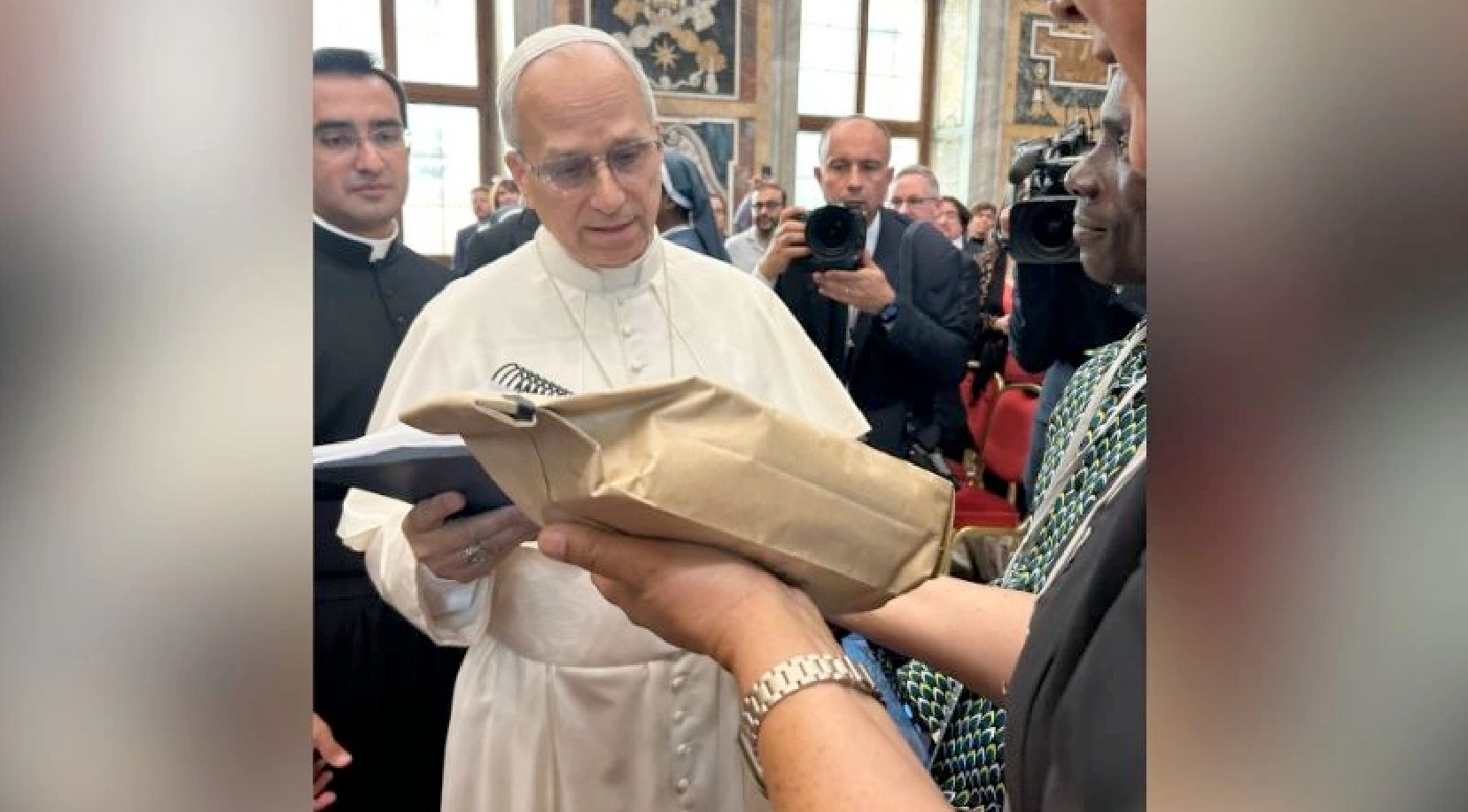(ZENIT News / Vatican City, 10.03.2025).- The plight of Nicaragua’s embattled Catholic Church has reached the desk of Pope Leo XIV, thanks to the determined advocacy of Muriel Sáenz, a Nicaraguan migrant rights defender now based in the United States. During the Jubilee of Migrants celebrated in Rome, Sáenz placed in the Pope’s hands a report documenting years of religious persecution under the regime of Daniel Ortega and Rosario Murillo, alongside letters from victims and a bag of Nicaraguan coffee.
The report, “Nicaragua: A Persecuted Church,” is the seventh edition of a study compiled in exile by attorney and researcher Martha Patricia Molina. It details 1,010 aggressions against the Catholic Church between April 2018 and July 2025, ranging from assaults on clergy to attacks on sacred spaces and the suppression of traditional processions. According to Molina, the figures reveal not only a pattern of harassment but also the silencing effect of fear: fewer reported cases in 2025 reflect not improved conditions, she warns, but the growing intimidation of priests and religious communities.
Sáenz described the moment with the Pope as a personal mission fulfilled. “He was very attentive when I mentioned Nicaragua,” she later wrote. In a private letter delivered to the pontiff, she pleaded for his intercession on behalf of political prisoners and the wider Catholic community enduring repression.
The data contained in Molina’s report is stark. Since 2019, more than 16,500 religious processions have been banned by state authorities. Over 300 priests, nuns, and religious workers have abandoned pastoral service in Nicaragua, many forced into exile. The closures of Catholic universities, media outlets, and charitable organizations further underscore the systematic nature of the crackdown. Even when the pace of documented aggressions slowed — 32 cases this year, compared with 183 in 2024 — the author attributes the decline not to tolerance but to censorship and fear.
Relations between the Holy See and Managua have been frozen since 2023, when the government expelled the papal representative and Pope Francis denounced what he called a “grotesque dictatorship.” The arrival of this new dossier in the hands of his successor signals that Nicaraguan Catholics continue to look to Rome for moral support, even as diplomatic ties remain severed.
For Sáenz, who has successfully fought for asylum protections for exiled compatriots in the United States, the encounter was more than symbolic. It represented a bridge between the silenced faithful of Nicaragua and the universal Church. “Today I carried their voices to the heart of the Vatican,” she said. Whether the Pope’s attention will translate into new initiatives remains uncertain. But for those enduring persecution at home, the act of being heard at the highest level of the Church is itself a sign of solidarity.
Thank you for reading our content. If you would like to receive ZENIT’s daily e-mail news, you can subscribe for free through this link.

